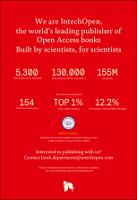Chapter Hybrid-Powered Autonomous Robots for Reducing Both Fuel Consumption and Pollution in Precision Agriculture Tasks
Author(s)
Gonzalez-de-Soto, Mariano
Emmi, Luis
Gonzalez-de-Santos, Pablo
Language
EnglishAbstract
Environmental contamination and the resulting climate change are major concerns worldwide. Agricultural vehicles that use fossil fuels emit significant amounts of atmospheric pollutants. Thus, this study investigates techniques to reduce fuel consumption in robotic vehicles used for agricultural tasks and therefore reduce atmospheric emissions from these automated systems. A hybrid energy system for autonomous robots devoted to weed and pest control in agriculture is modeled and evaluated, and its exhaust emissions are compared with those of an internal combustion engine-powered system. Agricultural implements require power for hydraulic pumps and fans; this energy is conventionally provided by power take-off (PTO) systems, which waste substantial amounts of energy. In this work, we examine a solution by designing and assessing a hybrid energy system that omits the alternators from the original vehicle and modifies the agricultural implements to replace the PTO power with electrical power. The hybrid energy system uses the original combustion engine of the tractor in combination with a new electrical energy system based on a hydrogen fuel cell. We analyze and compare the exhaust gases resulting from the use of (1) an internal combustion engine as the single power source and (2) the hybrid energy system. The results demonstrate that the hybrid energy system reduced emissions by up to approximately 50%.
Keywords
atmospheric emissions, exhaust gases, hybrid power, robotic vehicles, precision agricultureDOI
10.5772/intechopen.79875Publisher
InTechOpenPublisher website
https://www.intechopen.com/Publication date and place
2019Classification
Automatic control engineering


 Download
Download